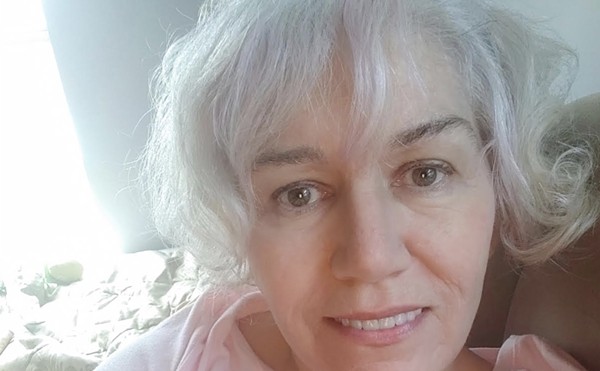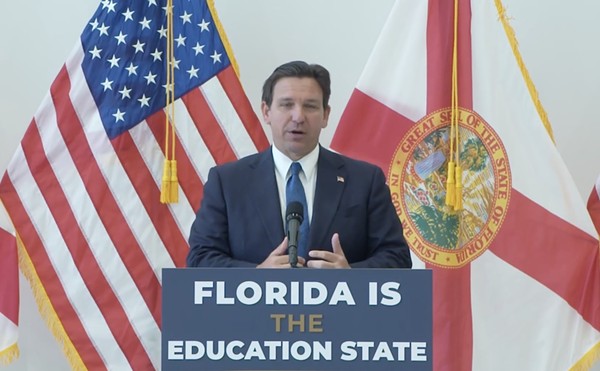Lee County is not teaching miracles as history. Jacksonville students may no longer be forced to hear prayers at graduation ceremonies. Police offer the Miami homeless a shelter rather than a jail cell. And a Dade County ordinance making it a crime for the poor to seek day jobs has been invalidated -- at least partially.
Such is the 1998 legacy of the American Civil Liberties Union of Florida.
The organization's biggest victory, says executive director Howard Simon, was the Miami homeless case -- a 10-year battle that will pay each plaintiff $1,500. "That has really turned out to be a national model" for homeless management, Simon says. "It's a much more rational and humane program than locking them up."
Andy Kayton, ACLU's staff attorney, points to Gibson vs. Lee County as a highlight for the year. Pitting the ACLU against the Pat Robertson-backed American Center for Law and Justice, the Gibson case made national news by forcing the Lee County School Board to throw out a controversial Bible curriculum.
The National Council on Bible Curriculum in the Public Schools, a North Carolina-based organization, had offered the course to the school board, newly dominated by the Christian right. Although the council claimed its curriculum was constitutionally sound, school board lawyers disagreed. The board tried to implement the curriculum anyway, and the ACLU filed suit.
The judge declared it was "difficult to conceive how the account of the Resurrection or of miracles could be taught as secular history." That was "a staggering defeat for the Christian right, because this is their model curriculum," says Kayton. The school board agreed to replace the curriculum with a college-level Bible-studies text. Kayton has mixed feelings.
"I anticipated a courtroom confrontation of so-called biblical proportions," he says. "The other side just kind of caved."
Kayton filed another controversial suit last year in Jacksonville -- refiled it, actually, after the federal district's chief judge made some unusual legal maneuvers.
The case involves the familiar ACLU issue of prayer at school events. Graduation ceremonies in Duval have traditionally included prayer, but the U.S. Supreme Court gave the thumbs down to that in 1992. To avoid this problem, school officials called for only certain students to give the invocation. The ACLU sued in 1994.
On appeal, Judge Gerald B. Tjoflat, without explanation, replaced the other two judges on the panel and reheard the arguments in 1996. Then this new panel sat on the case until all the plaintiffs had graduated from high school. Once that happened, the judge vacated the case as moot.
"Now, there are all kinds of legal arguments that could be made against that `kind of delay`," Kayton says. But not in a case the judge has vacated.
So Kayton refiled the same case in the same court, lost again and re-appealed. "This may go to the Supreme Court," he says.
Perhaps the ACLU's most unusual case was over a Dade County ordinance making it a crime to loiter for purposes of temporary employment. Nearly 600 Hispanic men were jailed.
"Under the law you could be arrested for standing at a casting call on South Beach," Kayton says. "But no one was."
The ordinance was passed because the shopkeepers in one area didn't like poor folks -- mostly illegal immigrants -- waiting on the corner for day jobs. The ACLU sued both the city and county, and late last year the county agreed to pay those arrested $2,000 for each incident. "This is going to be significant money for some people," Kayton says. "Some of the plaintiffs had been arrested 10 times."
The city has not yet offered to settle.
Simon says his organization will be watching the state legislature and Gov. Jeb Bush very closely in the coming year on the issue of school vouchers. "There is no question for us that ... the overwhelming civil-liberties battle in the state of Florida is going to be the protection of the public schools," Simon says.
He predicts hard-right lawmakers will push for a full voucher conversion, while more moderates will opt for a "mini" program closer to the one touted by Bush.
It hardly matters, explains Simon. "It's a fundamental transfer of public funds to private institutions."

















